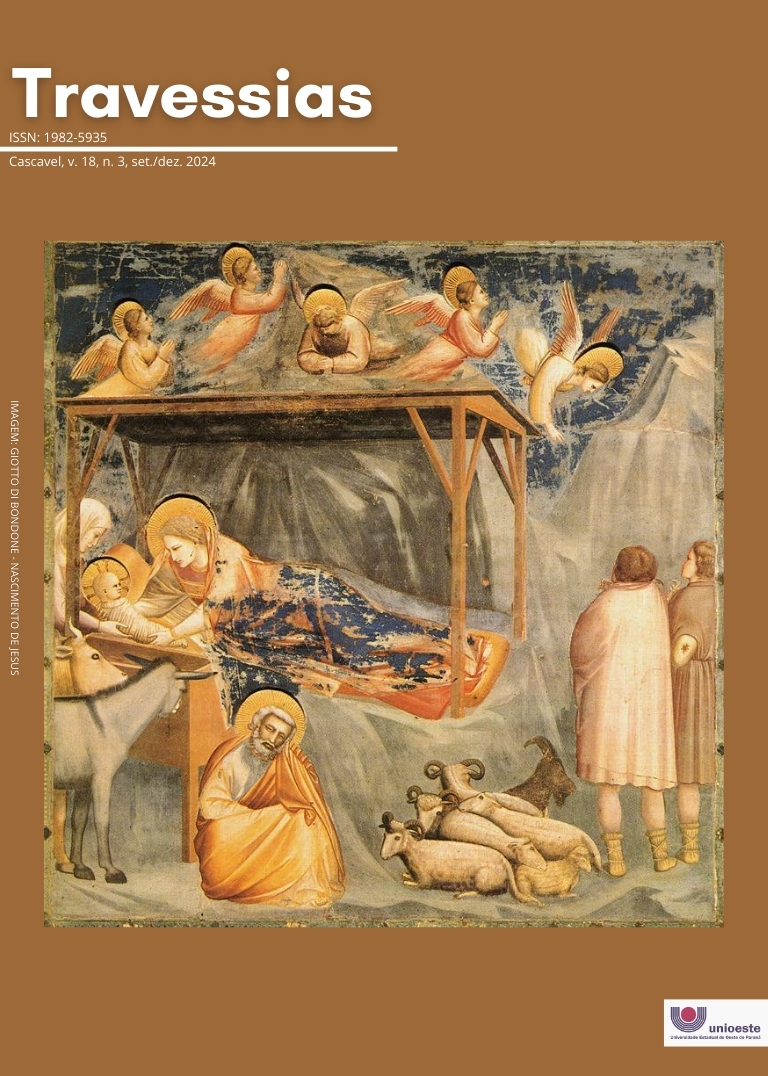Against the innocence of the concept
a call for the civilization of ideas
DOI:
https://doi.org/10.48075/rt.v18i3.34255Keywords:
Concept, Complexity, Edgar Morin, GRECOMAbstract
Although it is a very useful tool and widely used by the sciences, the formulation of a concept is not free from political, social and epistemological misrepresentations. Precisely for this reason, it cannot be treated as something trivial or sufficiently consolidated not to be questioned, because once it is treated as something untouchable, the concept can become a means by which scientists and opinion formers close themselves off in corporate circles that distance them from the general public and blind them to the self-deceptions produced by scientific practice itself. Removed from the general public, they don't participate in its life. By not participating, they expose people to the traps of denialism and fundamentalism. With this in mind, this article was conceived as an announcement of the limitations surrounding the act of conceptualizing and a reminder that our scientific practices will always fall short of reality, based on Edgar Morin's Complex Thought. The aim of the work is to reaffirm the importance of reconnecting knowledge and provoking debates in the various areas of knowledge about their time-honored practices and the scientific field, given that one discipline alone is not enough to say everything about what it is looking at. To demonstrate this, the work makes use of a qualitative and bibliographical reflection on the theoretical references that underpin Complex Thinking, describing details of experiences of the Complexity Studies Group (GRECOM), linked to the Postgraduate Program in Education at the Federal University of Rio Grande do Norte (UFRN), so that these experiences are treated as concrete examples of what is dealt with bibliographically.
Downloads
References
ATLAN, Henri. Viver e conhecer. Cronos - Revista do Programa de Pós-graduação em Ciências Sociais da UFRN, Natal, v. 2, n. 2, 2001. Disponível em https://periodicos.ufrn.br/cronos/article/view/14200. Acesso em: 10 out. 2024.
BACHELARD, Gaston. O novo espírito científico. Lisboa: Edições 70, 1995.
BACHELARD, Gaston. A poética do espaço. 5. ed. São Paulo: Martins Fontes, 2008.
BOHR, Niels. Física atômica e conhecimento humano. Rio de Janeiro: Contraponto, 2007.
BOURDIEU, Pierre. Os usos sociais da ciência: por uma sociologia clínica do campo científico. São Paulo: UNESP, 2004.
DELEUZE, Gilles. Conversações. São Paulo: Editora 34, 1996.
FOUCAULT, Michel. As palavras e as coisas: uma arqueologia das ciências humanas. 10. ed. São Paulo: Martins Fontes, 2016.
HEINSENBERG, Werner. A parte e o todo. Rio de Janeiro: Contraponto, 1996.
MERLEAU-PONTY, Maurice. Signos. São Paulo: Martins Fontes, 1991.
MERLEAU-PONTY, Maurice. Fenomenologia da percepção. 5. ed. São Paulo: Martins Fontes, 2018.
MORIN, Edgar. Os sete saberes necessários para a educação do futuro. 2. ed. São Paulo: Cortez, 2000.
MORIN, Edgar. A cabeça bem-feita: repensar a reforma, reformar o pensamento. 8. ed. Rio de Janeiro: Bertrand Brasil, 2003.
MORIN, Edgar. Meus demônios. 6. ed. Rio de Janeiro: Bertrand Brasil, 2013.
MORIN, Edgar. Introdução ao pensamento complexo. 5. ed. Porto Alegre: Sulina, 2015.
MORIN, Edgar. Ciência com consciência. 17. ed. Rio de Janeiro: Bertrand Brasil, 2018.
MORIN, Edgar. Conhecimento, ignorância, mistério. Rio de Janeiro: Bertrand Brasil, 2020.
OLIVEIRA, Josineide Silveira de; DANTAS, Eugênia Maria; FRANÇA, Fagner Torres de (org.). Fronteiras borradas: em torno das ciências da vida. Natal: 8 Editora, 2019.
VERGANI, Teresa. A surpresa do mundo: ensaios sobre cognição, cultura e educação. Organizadores: Carlos Aldemir da Silva; Iran Abreu Mendes. Natal: Editorial Flecha do Tempo, 2003.
Downloads
Published
How to Cite
Issue
Section
License
Copyright (c) 2024 Authors keep the copyright and grant the journal the right of first publication, with the work simultaneously licensed under the Creative Commons Attribution License (CC-BY-NC-SA 4.0), which allows sharing the trial with acknowledgment of authorship and initial publication in this journal.

This work is licensed under a Creative Commons Attribution-NonCommercial-ShareAlike 4.0 International License.
Creative Copyright Notice
Policy for Free Access Journals
Authors who publish in this journal agree to the following terms:
1. Authors keep the copyright and grant the journal the right of first publication, with the work simultaneously licensed under the Creative Commons Attribution License, which allows sharing the trial with acknowledgment of authorship and initial publication in this journal.
2. Authors are authorized to take additional contracts separately, for non-exclusive distribution of the work version, published in this journal (eg publish in institutional repository or as a book chapter), with acknowledgment of authorship and initial publication in this journal.
3. Authors are allowed and encouraged to publish and distribute their work online (eg in institutional repositories or on their personal page) at any point before or during the editorial process, as this can generate productive changes, as well as increase both impact and citation of the published trial (See The Effect of Free Access).
Creative Commons License
This work is licensed under a Creative Commons Attribution–NonCommercial-shareaswell 4.0 International License, which allows you to share, copy, distribute, display, reproduce, completely or part of the work, since there is no commercial purpose, and authors and source are cited.



